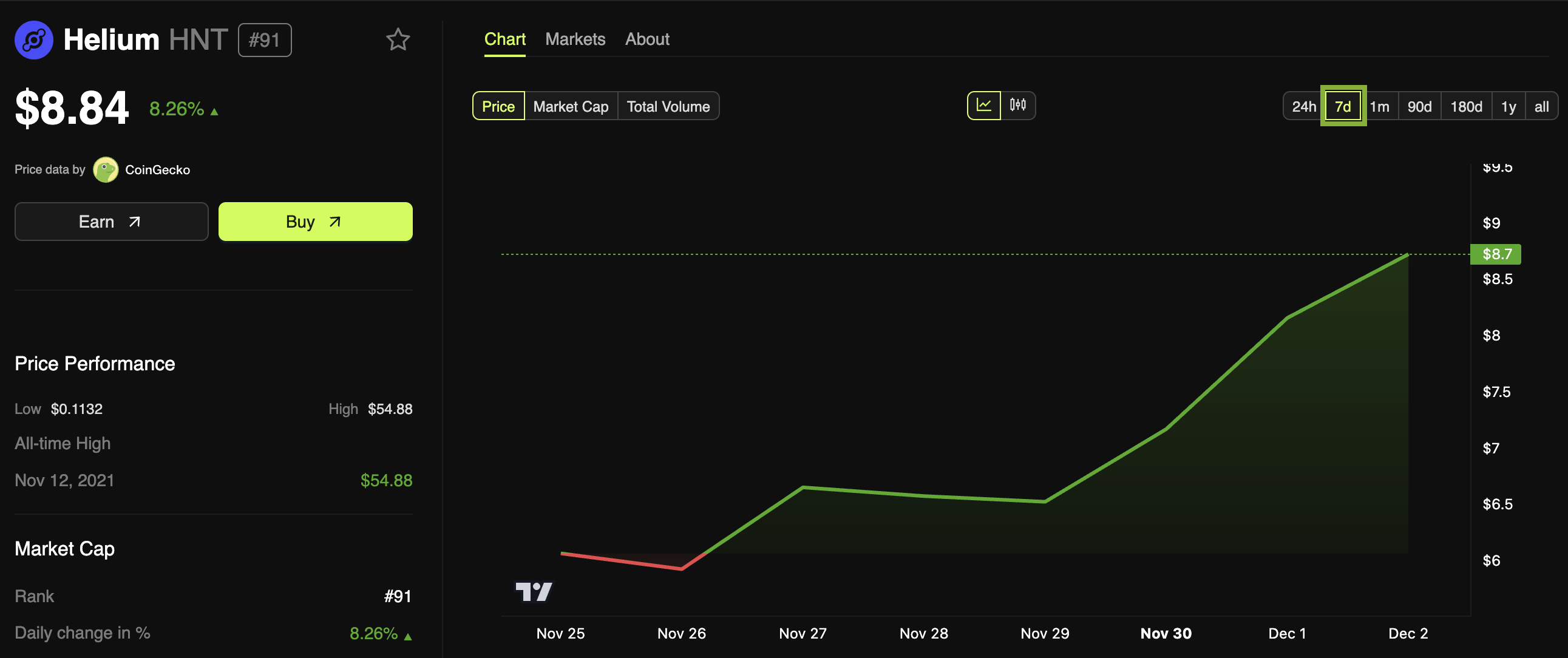The Decentralized Physical Infrastructure Network (DePin) is innovating technology by enabling decentralized projects in real-world infrastructure.
Recent developments in the DePin space include: OpenLedger partnered with io.net for AI development, Harvard Business School approved a case study on Helium, and Peak released an ecosystem report on its November activities.
OpenLedger Partners with Io.net
The DePIN GPU Computing Network io.net partnered with OpenLedger this week. OpenLedger is a data blockchain for AI, and it will use io.net's GPU resources to improve and train its AI models. These resources will also operate services to support and host OpenLedger's AI models, ensuring performance and scalability.
"By providing GPU computing, io.net has enabled OpenLedger to secure an infrastructure provider that can scale its AI models and unlock new use cases. This will strengthen its position as an innovative provider of decentralized AI models." – Tausif Ahmad, VP of Business Development at io.net.
io.net's recent AI development explorations don't stop there. In late November, it provided similar services to Zero1 Labs, another AI research company.
The company partnered with GAIB earlier that month, and in September, it partnered with the TARSS protocol. While io.net is not an AI company, this series of partnerships clearly demonstrates its strong interest in this field.
Harvard Business School Approves Helium Case Study
Helium, a Solana-based decentralized infrastructure company, announced on November 26 that Harvard Business School has accepted a case study on Helium. Jorge Tamayo and Mahesh Ramakrishnan will teach the case study titled "Helium: Crowdsourcing a National Communications Network." Following the announcement, the company's HNT token has been steadily rising.

HNT has risen about 150% this year, and Helium has had a successful few months. This endorsement from Harvard Business School represents a new milestone in institutional acceptance of the DePin industry.
Peak's Performance... Ecosystem Report Released in November
Peak, a layer-1 blockchain ecosystem for DePin, released its November ecosystem report via social media. The report includes the company's recent highlights: mainnet launch in mid-November, $1 billion in staked tokens, and USDC integration.
Peak was somewhat vague about its expected progress for December. The company hinted that new DePin projects will "join the Peaq ecosystem," and there will be other unspecified integrations and product launches. However, over the past 4 months, it integrated 13 DePins, so Peak is likely to continue expanding.







